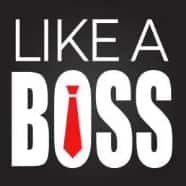Kris Gopalakrishnan is a man who wears many hats. Although he is best known as the co-founder of Infosys, India's first major IT services firm, he is also a well-regarded thought leader, angel investor, and is currently the chairman of Axilor Ventures, an early-stage venture capital firm. Axilor' portfolio companies include healthcare firm Sigtuple, enterprise software startup Urban Piper and content firm Pocket Aces.
In 'Like A Boss', Gopalakrishnan speaks to Moneycontrol's M. Sriram about his leadership techniques, how inspirations, work schedule, and the secrets behind a nearly 35-year stint as one of corporate India's most respected entrepreneurs and leaders.
What time do you like to be at your desk?
Typically at 10 am, unless someone wants to start earlier. I go on till about 9:30 at night. For meetings in the US, it has to be at a decent time for them, which will be the night for us. But timings have definitely changed during the pandemic. My days are much longer now. I won't have the time to exercise in the evening so I try to finish that before I start work. In my pandemic schedule, there is no break because there is no travelling. It is non stop.
The best place to prepare for leadership- business school or on the job?
A business school teaches you theories, models, and tools. But you need experience in real life. Some people show leadership qualities from a very early age, and these people become leaders later without going to a B-school. Others can learn it from B-school, practice it at work, and typically get mentored by someone who helps them with the nuances of leadership.
There are benefits to both, but on the job is clearly better. If a person is motivated, then even on the job, a lot of books, resources, coaching material and mentors are available. Ultimately leadership has to be practised, so you learn better by doing.
Describe your management style
My approach is to build consensus, try and listen to everyone, and take people along with me. Consider all the data and facts, and if the data is incomplete, then make a decision based on the data you have. So you go by your best estimate of what the decision should be in that situation.
Ideally, it should be collective. For example, during the 2008 financial crisis, we made everyone at Infosys involved in things like expense control, what can we do better, client support, etc. We want to get everyone involved because they are afraid and anxious. Giving them something to do, giving them a feeling that they are part of the solution builds confidence, builds teamwork. They feel like whatever decision is taken, their inputs are listened to.
But then there are some situations, like for confidential matters, when only a smaller group of people may decide. If there is no consensus, ultimately one person has to decide. The CEO has to make the decision
Do you want to be liked, feared or respected?
Clearly, respected. That is the best of the options you have given. I strongly feel like leadership by example is the best form of leadership. I believe in influencing people rather than imposing by command and control. So I would choose respect.
What does your support team look like?
Today I have a very wide range of responsibilities, from looking at my family office to investments in startups, to supporting research, education. I’m the chairman of IIIT Bangalore. All of these have many people behind them. Only my family office is pretty small. 4 people, that’s it.
Who is a business leader outside the IT industry you draw inspiration from?
When you look at different organisations and aspects of business-building, you look at different people. For example, in philanthropy, I look at Bill Gates. For investing, I look at Warren Buffet. For a business leader, I look at Satya Nadella, for how he has transformed Microsoft. For corporate governance, it is Narayana Murthy (co-founder, Infosys) For different aspects I look at different people.




 M. Sriram
M. Sriram 






